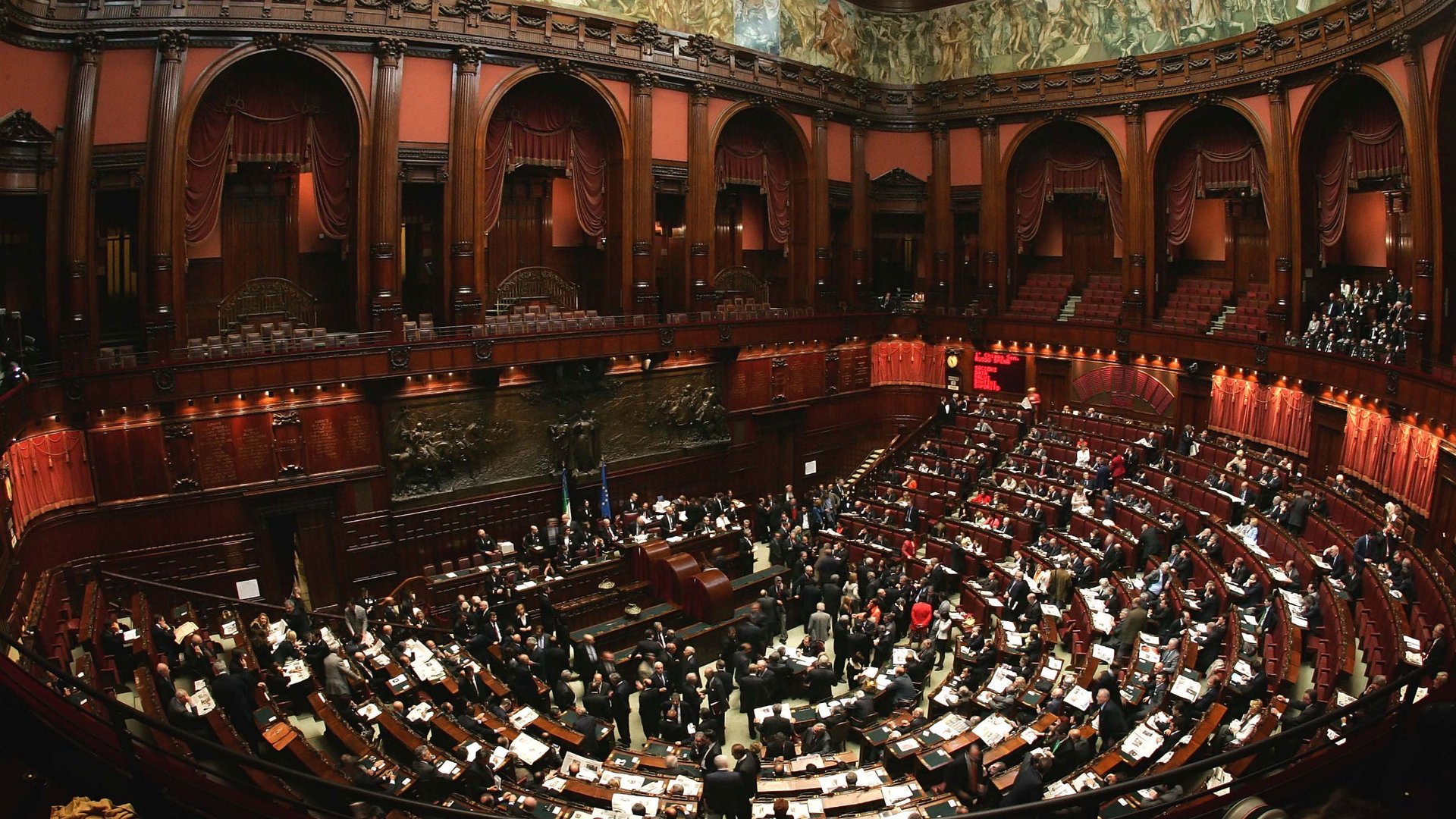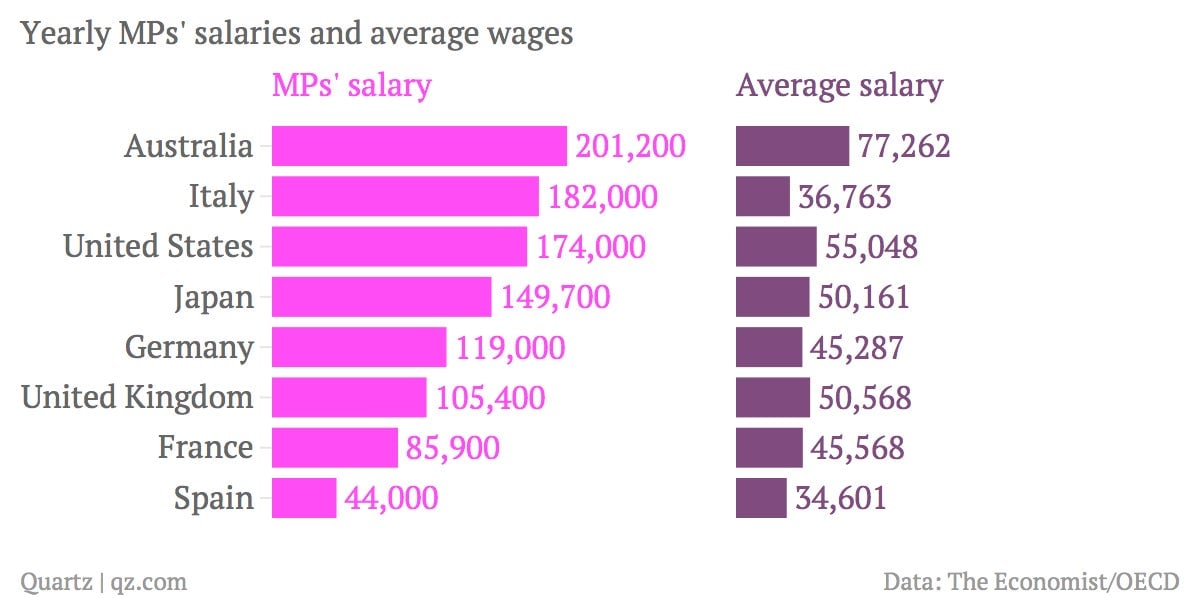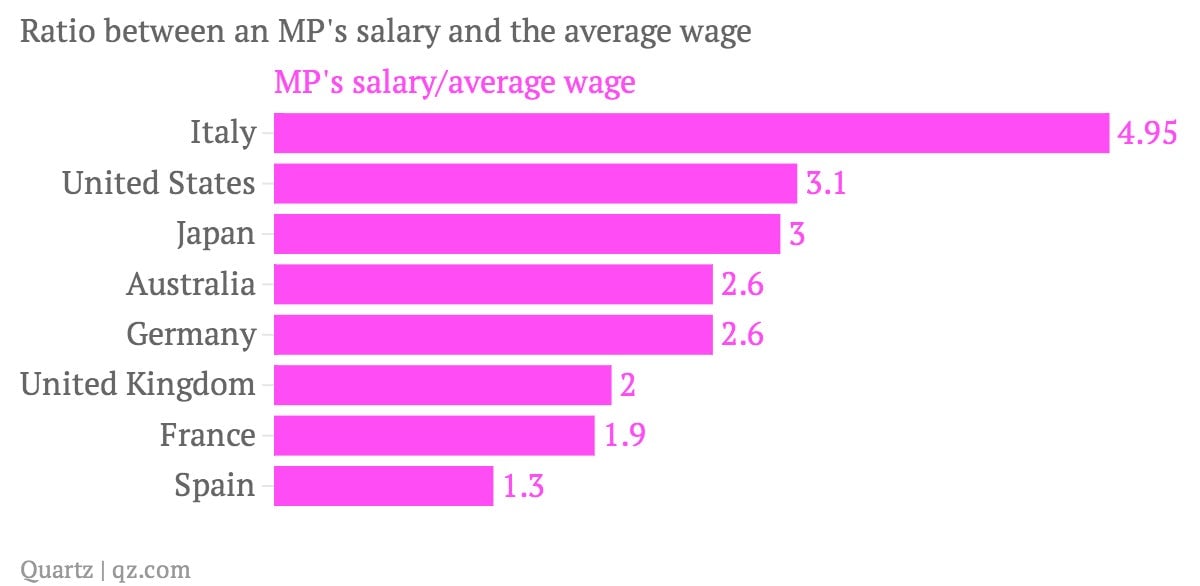In Italy, members of parliament make five times more than the average worker
Before he was appointed, Italy’s new prime minister Matteo Renzi promised that he was going to work on a plan to cut the notoriously exorbitant cost of Italian politics by a billion euros a year. His savings proposal was to halve both the number of Members of Parliament and the salaries of the remaining representatives.


Before he was appointed, Italy’s new prime minister Matteo Renzi promised that he was going to work on a plan to cut the notoriously exorbitant cost of Italian politics by a billion euros a year. His savings proposal was to halve both the number of Members of Parliament and the salaries of the remaining representatives.
In an institutional reform, Renzi plans to get rid of the Senate, the upper house of the Italian parliament (which works on a bicameral system where both houses have to approve a law before it can be passed), which is believed to slow down the lawmaking process. That would mean removing around 320 senators (depending on the number nominated by the president), which would indeed drastically reduce the country’s expenditure in supporting its politicians: their salaries alone amount to over $58 million. Renzi had pledged the reform would be done in February, yet the debate is still ongoing.
This would leave Italy with 630 representatives in the lower house, whose total salary would amount to about $115 million. Though in its first week of activity, the government has reduced the phone allowance for MPs from over €3,000 ($4,132) a year to €1,200 ($1,653)—which will save Italy an estimated €1.2 million ($1.37 million) a year—no timeline is in place to perform more significant cuts to the actual salaries of MPs, which are remarkably higher than the rest of Europe, and the world.
Although there are no official data, last year The Economist compiled an estimate of MPs salaries around the world. It’s particularly interesting to see how the salaries compare with the average wages of workers in each country.

Italians have relatively low average salaries, and yet Italian MPs are only surpassed by Australians in terms of earnings.
Given Australia’s higher income, however, its MPs salaries correspond to about 2.6 times the average income. Italian MPs salaries are, instead, 4.95 times as much as the average wage. In other countries, MPs’ salaries are up to three times the average salaries: this reframes the Italian problem—not merely bloated politics, but also one of inequality. This is a well-known fact to Italian voters, many of whom expressed their outrage by voting the Five Star Movement whose representatives are forced by their party to give between €3,500 ($4,800) and €7,100 ($9,780), to help reduce (link in Italian) public debt and fund small business.

The European Central Bank has been requesting that Italy cut its public sector expenditures for a couple of years now. While removing the Senate will indeed save money, the problem with Italian MPs’ unequal salaries won’t be solved unless they are significantly resized.
To have a ratio between their salary and the average wage more similar to that of other European (and world) countries, MPs would have to cut their remuneration in half—or manage to double the average wage, which Italians would probably be OK with.
Correction: a previous version of the article stated the total salaries of Italy’s Senate and Lower House MPs amount to €58 and €115 million respectively; the correct amounts are $58 and $115 million.